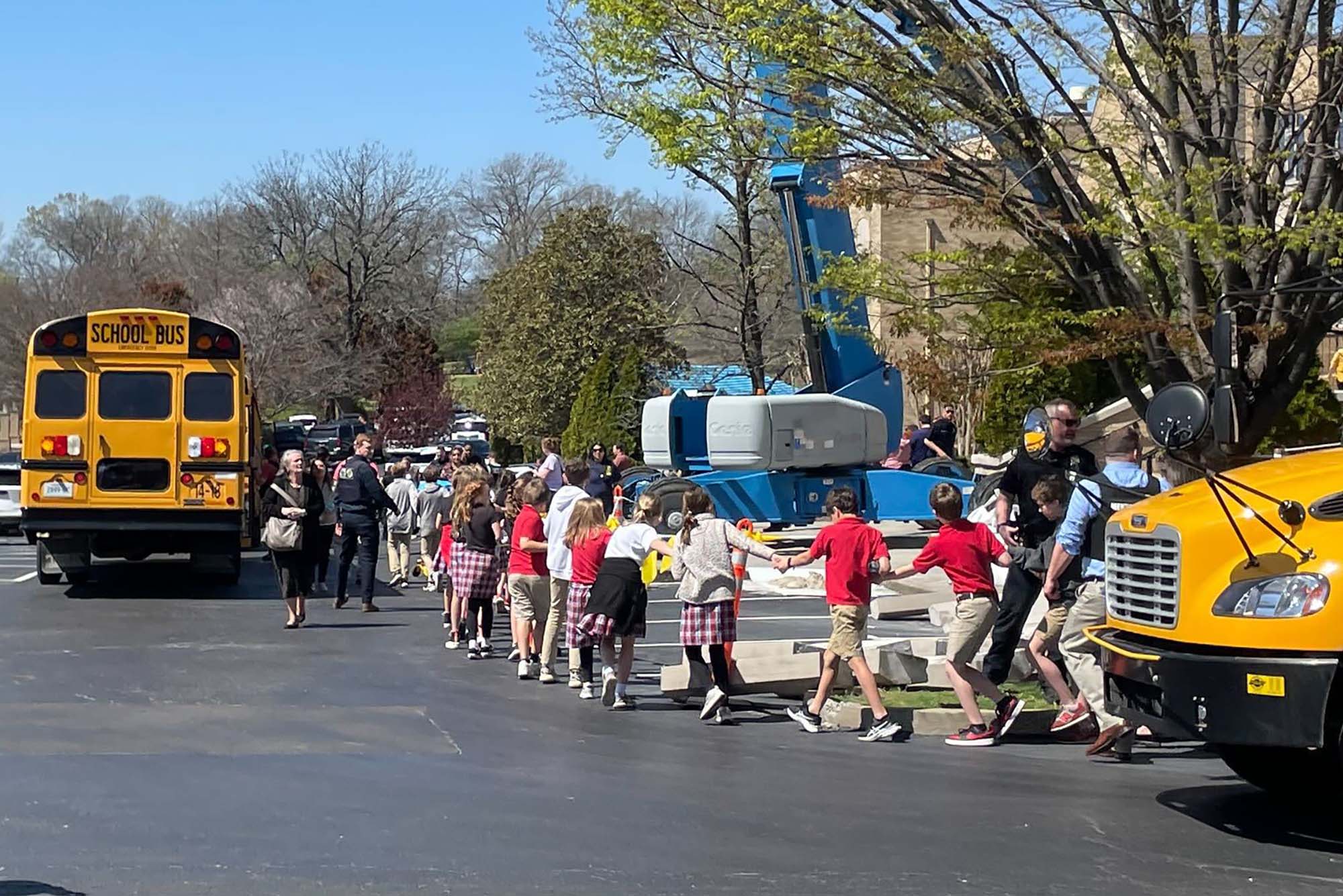Once Again, Our Nation Is Forced to Talk to Children about Guns, Deaths.

Once Again, Our Nation Is Forced to Talk to Children about Guns, Deaths
Ziming Xuan, Jonathan Jay, and Rachel Martin discuss gun legislation, and what to do next after the Nashville school shooting, including how to support traumatized children.
A version of this story originally published in BU Today.
Numbing fatalism surrounds the relentless repetition of US school shootings. There have been 376 since 1999, killing 175 people and exposing a staggering 348,000 children to gun violence. The cycle continued Monday with six murders, including three children, at the Covenant School, a Christian elementary school in Nashville, Tennessee.
Police say Audrey E. Hale, a former student at the Covenant School, launched a shooting spree with two assault-style rifles and a handgun that left three 9-year-olds and three staffers dead. (Investigators said Hale used male pronouns in social media posts.) Hale, who police shot and killed, had maps of the school, bought the guns legally, and was being treated for an emotional disorder, police said. After the grim news, President Biden reiterated his demand for a ban on assault weapons, which has stalled in Congress.
On an individual level, parents should reassure their schoolchildren that adults try to keep kids safe, says Neena McConnico. She’s a Chobanian and Avedisian School of Medicine assistant professor of pediatrics who directs the outpatient Child Witness to Violence Project at MED’s teaching hospital, Boston Medical Center. McConnico told the Boston Globe, “Maybe families have had complicated relationships with law enforcement. In our work with kids, we don’t rule them out as helpers, either… We have conversations with caregivers around how to talk about that, what feels safe, helping kids and families to understand that there are helpers, even in law enforcement,” along with teachers, coaches, extended family, and others.
Here we are again as a nation: A little more than a decade after 20 children were killed at Sandy Hook Elementary School in Newtown, Connecticut, BU Today reached out this week to BU experts to revisit questions around talking to traumatized children about gun violence.
Ziming Xuan is professor of community health services at the School of Public Health and has appointments at MED and its teaching hospital, Boston Medical Center. He is a social epidemiologist whose research includes gun policy. Jonathan Jay is an SPH assistant professor of community health services who studies youth exposure to gun violence. He studied the surge in gun violence during the first year of the pandemic. Rachel Martin (SAR’22, SPH’23) is project manager for SPH’s Research on Innovations for Safety and Equity (RISE) Lab (which Jay leads) and studied racial disparities among children who experienced gun violence. David J. Schonfeld (CAS’83, MED’83) directs the National Center for School Crisis and Bereavement.
Q&A
with Ziming Xuan, Jonathan Jay, Rachel Martin, and David Schonfeld
BU Today: Given the rarity of a biological woman shooter, is it likely the killer here had a different motive than the usual male shooter?
Xuan: It is difficult to comment on the killer’s motive and whether gender has played a role in this tragedy. The police have not released information about the motives.
How do children traumatized by gun violence ever recover? How do we help them?
晶澳
“Exposure to gun violence has lasting mental and physical health effects for children, including problems like anxiety, depression, and PTSD.”
How strict are Tennessee’s gun safety laws? Or does that even matter today, given that people can get guns across state lines?
Xuan: The stringency of Tennessee’s gun control environment was ranked around 29th in one of our prior studies. So, it was not considered among those that have the strongest gun control environment.
Gun control environment does matter in affecting overall gun violence, and also youth access to guns, even if people can get guns across state lines. Tennessee used to be a “shall-issue” state when it comes to concealed firearm permits [meaning authorities must give permits to whomever passes the state’s basic requirements]. Our studies found that “shall-issue” gun policies are associated with significantly higher rates of firearm homicide as compared to “may-issue” states, where enforcement officials may use their judgment in making decisions about whether to approve or deny a permit application. In 2021, Tennessee became a state that required no permit for concealed carry, becoming more lax with its firearm policy environment.
If congressional opposition to more federal gun laws is insurmountable, is there any viable strategy—by states, presidential executive order, something else—that should be looked at now?
徐